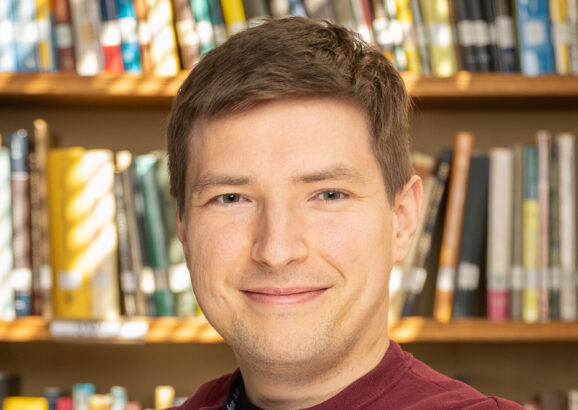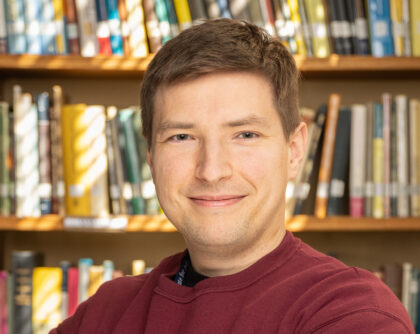Mikhail Ivanov
Research Interests
Mikhail Ivanov’s research has developed at the interface of theoretical physics and data analysis, bridging state-of-the-art theoretical ideas with observational data. The overarching aim of his research is to use Effective Field Theory in combination with astrophysical data in order to resolve fundamental challenges of modern physics, such as the nature of dark matter, dark energy, inflation, and gravity.
Mikhail has been creating first-principle theories and statistical techniques for cosmological analysis of data from large-scale structure surveys. He specializes in the extraction of information from correlation functions of the galaxy and matter distribution on cosmological scales. This information is then used to seek signals of new physics beyond the standard cosmological model, which may shed light on dark energy, dark matter, and the early universe. This program has already produced many unique results, such as the first-ever measurements of the Hubble constant and other properties of the universe from the galaxy power spectrum shape. These results set the stage for analyzing new cosmological data from upcoming high-precision large-scale structure surveys. Mikhail’s research in large-scale structure unites fundamental cosmology, formal field theory, and galaxy formation physics.
Mikhail also works on aspects of black hole physics relevant for gravitational wave astronomy. In particular, he studies black hole perturbations, and specifically how their symmetries are connected to the mysterious behavior of their tidal deformations (Love numbers). In addition, Mikhail is broadly interested in using novel theoretical tools, such as gravitational effective field theories and scattering amplitudes, to interpret gravitational wave observations and to understand the origin of spacetime.
Biographical Sketch
Mikhail obtained his PhD from the École polytechnique fédérale de Lausanne (EPFL) under the supervision of Sergey Sibiryakov in 2019. During his PhD studies, he spent one year at the Institute for Advanced Study in Princeton, NJ as a fellow of the Swiss National Science Foundation. After that he was a postdoctoral associate at New York University and a NASA Einstein Fellow at the Institute for Advanced Study. He joined the MIT Center for Theoretical Physics — a Leinweber Institute (CTP-LI) as an assistant professor in July 2023.

Mikhail Ivanov wins 2024 New Horizons in Physics Breakthrough Prize
MIT assistant professor of physics shares award for understanding the large-scale structure of the universe.
Awards & Honors
- 2021-23 // NASA Hubble Fellowship Program (NHFP) Einstein Fellowship
- 2021 // Second Buchalter Cosmology Prize
- 2019 // EPFL PhD Distinction prize for "an outstanding thesis in Physics"
- 2018-19 // Swiss National Science Foundation Mobility Fellowship
Key Publications
-
P. Charalambous, S. Dubovsky, Mikhail M. Ivanov, “Hidden Symmetry of Vanishing Love Numbers,” Phys.Rev.Lett. 127 (2021) 10, 101101
https://journals.aps.org/prl/abstract/10.1103/PhysRevLett.127.101101 -
M. M. Ivanov, M. Simonović and M. Zaldarriaga, “Cosmological Parameters from the BOSS Galaxy Power Spectrum,” JCAP 2005 (2020) 042
https://iopscience.iop.org/article/10.1088/1475-7516/2020/05/042 -
D. Blas, M. Garny, M. M. Ivanov and S. Sibiryakov, “Time-Sliced Perturbation Theory II: Baryon Acoustic Oscillations and Infrared Resummation,” JCAP 1607 (2016) 028
https://iopscience.iop.org/article/10.1088/1475-7516/2016/07/028 - All publications
